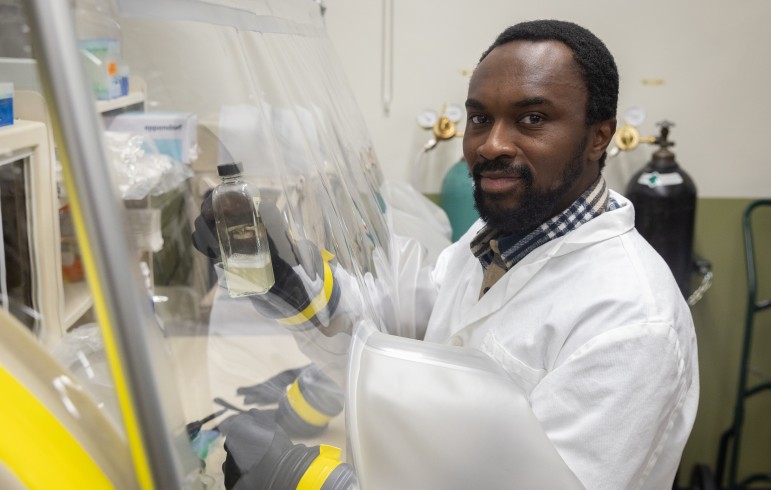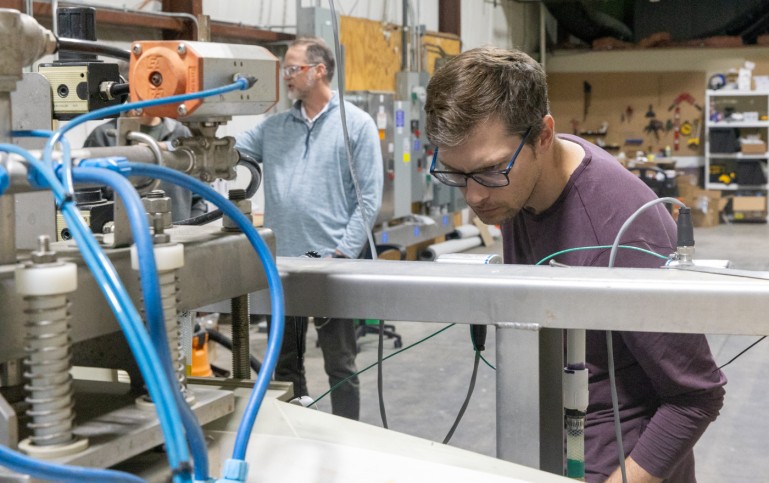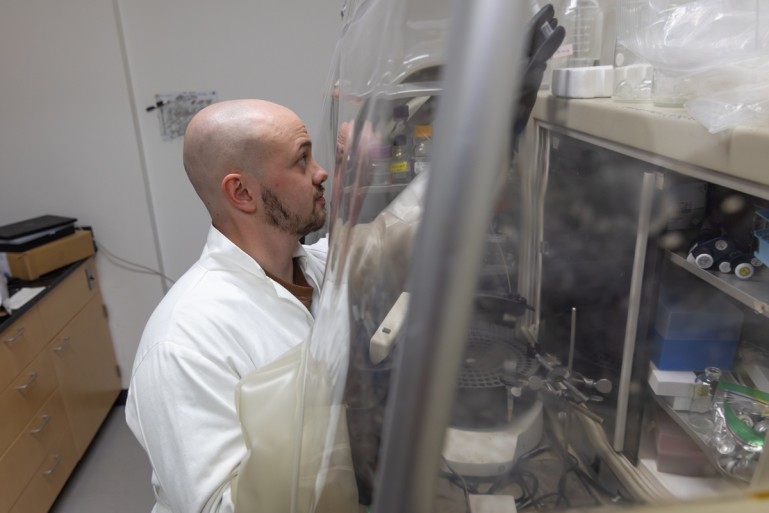Using a process called adaptive laboratory evolution, scientists found that a single genetic change allows N. aromaticivorans to digest acetovanillone, an aromatic compound in biomass that most studied microbes can't digest. DNA analysis predicts that many other bacteria use similar proteins to digest this and other related aromatic compounds.
When Kevin Myers needed computer software to support his biological investigations, he taught himself to code. Now he’s sharing that knowledge with others.
Avery Vilbert joined the Wisconsin Energy Institute in 2020 as a postdoc in the Donohue lab, where she is now a staff scientist studying Novosphingobium aromaticivorans, a bacterium that can eat plant waste and convert it into products used to make bioplastics, cosmetics, and other industrial commodities.
Scientists used machine learning, a type of artificial intelligence, to study how different yeasts protect themselves from harmful molecules that can limit industrial production of bioproducts like fatty acids. The study identified two key groups of genes and provides a framework for using machine learning to identify genes related to traits of interest across many species.
As the nation prepares to celebrate its birthday Friday, the U.S. Energy Information Administration has pulled together some data on how energy consumption has changed over the past 249 years.
Turning inedible plant fibers into transportation fuel has the potential to create a home-grown supply of clean and renewable energy and provide farmers with additional revenue streams without affecting food supplies.
After a year of design iterations, brainstorming sessions, and wind tunnel tests, UW-Madison’s WiscWind competition team wrapped up their year at the Collegiate Wind Competition in Boulder, Colorado. Although the team didn’t place, they walked away with something just as valuable – real-world experience in sustainable energy design and a renewed passion for innovation.



